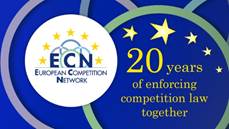Ιn the last 20 months, the Hellenic Competition Commission (HCC) has made a leap forward regarding its technological-digital structure, while it is becoming a leader, among the EU Competition Authorities, in the use of computational means in its investigations, already designing and implementing its own data collection platform, the HCC Data Analytics & Economic Intelligence Platform, recently presented during a special public event.
This platform is an important part of the HCC’s strategic transformation process so that it can adequately meet the new circumstances, increasing its effectiveness through the use of new techniques stemming from computational means.
In the context of the same strategic transformation, the HCC presented an "inception" report entitled "Computational Competition Law and Economics - An Inception Report". The Report, directed by the President of the HCC, Ioannis Lianos, is the result of the cooperation of a team of scientists acting as external experts for the HCC and a team of the Brics Competition Law and Policy Centre. It examines the impact of the use of Big Data, AI, machine learning, deep learning in competition law enforcement and is the first detailed report published by the HCC on this topic.
With the aim to present the above research and discuss legal and policy issues arising from the increasing use of computational tools in competition law enforcement, by legal and economic experts as well as members of Competition Authorities from around the world and also to examine the prospects of applying Artificial Intelligence techniques in this field, in the future, the Hellenic Competition Commission and the BRICS Competition Law and Policy Centre are co-organised an International Digital Conference on “The Promise of Computational Competition Law and Economics”, supported by the Journal of Competition Law and Economics.
The Conference addressed the challenges encountered by competition authorities in integrating such techniques and advanced learning in the legal framework of competition law enforcement, examining, in particular, the legal requirements with regard to the standard of proof, procedural rights and investigation procedures.
Based on computational techniques, software screening tools for investigating collusive conduct have been applied by several Competition Authorities. Important efforts have also been made to develop operational screening tools for other anticompetitive practices, such as excessive and exclusionary pricing. Experts in the development of computational antitrust tools will contribute their valuable insights and experiences on the matter.
The Conference was joined by prominent academics from around the world, key experts and members of national Competition Authorities.
You can watch the video of the conference here (in English).
The "Computational Competition Law and Economics - An Inception Report" (in English) can be found here.
In addition, the HCC, as part of a selected group of antitrust and competition agencies, participates in the international network for Computational Competition Law, hosted by the US Stanford University Codex Center.



